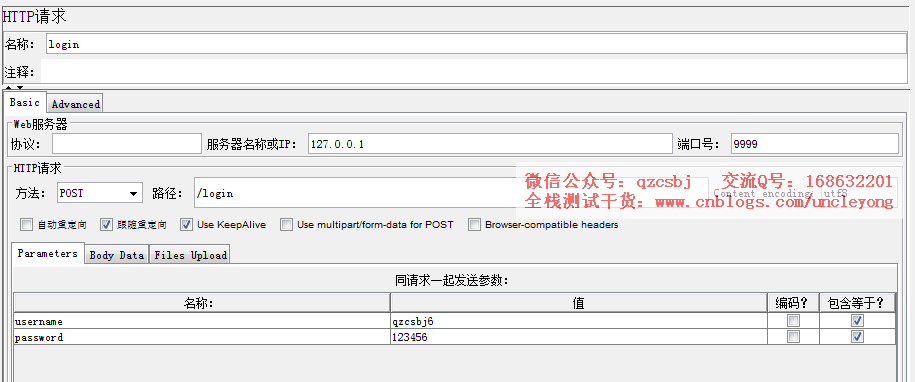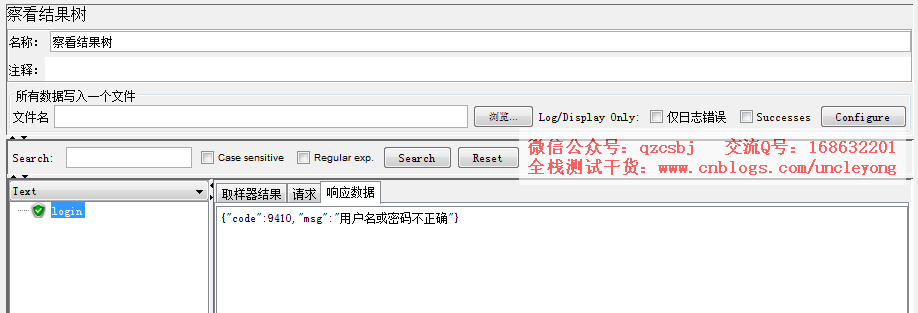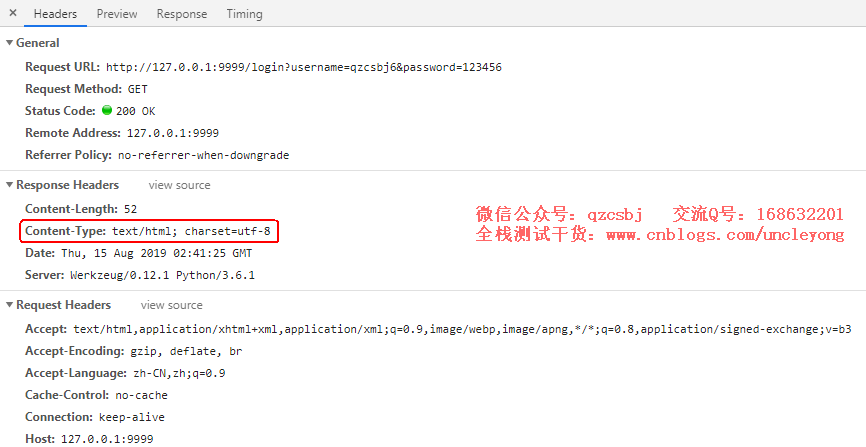flask中,不能直接return字典,需要把字典转换为json字符串
方式有三种:
1. return str(字典)
2.return json.dumps(字典)
3.return jsonify(字典)
其中,dumps是json模块的方法,jsonify是flask封装的方法
虽然他们返回的都是json字符串,但是是不一样的
0.代码及脚本准备
服务端部分代码
@server.route('/login',methods=['get','post'])
def login():
username = request.values.get('username','').strip()
password = request.values.get('password','').strip()
if username and password:
password = md5_s(password)
sql = 'select id,username from users where username="%s" and password="%s"'%(username,password)
res = op_mysql(sql)
if res:
token = username+str(int(time.time()))
token = md5_s(token)
op_redis(username,token)
response = make_response('{"code":9420, "msg":"恭喜%s,登录成功","token":"%s"}'%(username,token))
response.set_cookie(username,token)
return response
# return '{"code":9420, "msg":"恭喜%s,登录成功","token":"%s"}'%(username,token)
else:
return '{"code":9410,"msg":"用户名或密码不正确"}'
# return json.dumps({"code":9410,"msg":"用户名或密码不正确"},ensure_ascii=False)
# return jsonify({"code":9410,"msg":"用户名或密码不正确"}) # jmeter请求,中文响应乱码;postman请求,中文正常显示
else:
return '{"code":9400,"msg":"用户名和密码不能为空"}'
jmeter脚本
这里用错误的账号和密码来演示

1.返回str(字典)
return '{"code":9410,"msg":"用户名或密码不正确"}'
jmeter响应结果:中文正常显示

浏览器响应

响应头

2.返回json.dumps(字典)
return json.dumps({"code":9410,"msg":"用户名或密码不正确"})
jmeter响应结果:中文未正常显示

msg = "u7528u6237u540du6216u5bc6u7801u4e0du6b63u786e"
res = msg.encode('utf-8')
print(res,type(res))
res = msg.encode('utf-8').decode('utf-8')
print(res,type(res))
print(msg)
结果
b'xe7x94xa8xe6x88xb7xe5x90x8dxe6x88x96xe5xafx86xe7xa0x81xe4xb8x8dxe6xadxa3xe7xa1xae' <class 'bytes'> 用户名或密码不正确 <class 'str'> 用户名或密码不正确
要想中文正常显示,需要加上:ensure_ascii=False
return json.dumps({"code":9410,"msg":"用户名或密码不正确"},ensure_ascii=False)
jmeter响应结果:中文正常显示

浏览器响应

响应头

3.返回jsonify(字典)
return jsonify({"code":9410,"msg":"用户名或密码不正确"})
jmeter响应结果:中文未正常显示

要想中文正常显示,需要加上:server.config['JSON_AS_ASCII'] = False
jmeter响应结果:中文正常显示

浏览器响应

响应头

4.总结
方式一:返回的是: Content-Type:text/html
方式二:返回的是: Content-Type:text/html
方式三:返回的是: Content-Type:application/json
所以,方式三才是真正意义上的json字符串。